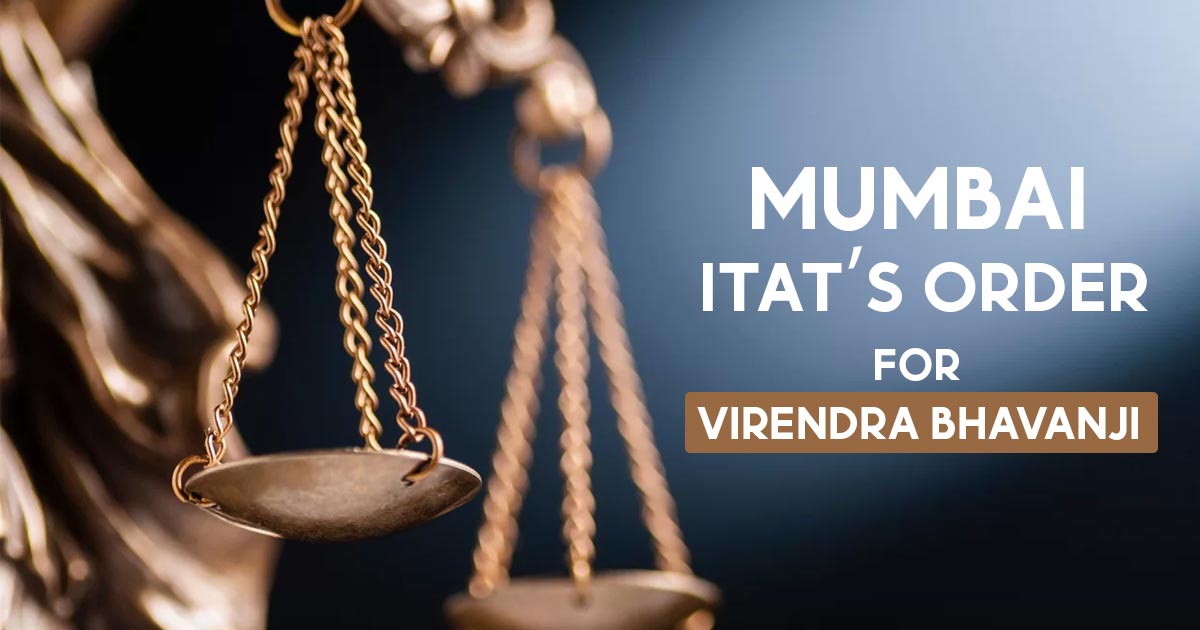
The Mumbai Bench of the Income Tax Appellate Tribunal (ITAT) has ruled that damage related to the right to sue is considered a capital receipt and is not subject to taxation.
The bench, comprising Amit Shukla (Judicial Member) and Amarjit Singh (Accountant Member), observed that Section 6 of the Transfer of Property Act explicitly outlines that a “mere right to sue cannot be transferred“, even if it qualifies as “property” under Section 5 of the Transfer Property Act. Transferring property involves the act of conveying it to another, but a mere right to sue, while it may or may not be regarded as property, cannot be legally transferred.
The appellant/assessee, an individual, entered into a Memorandum of Understanding (MOU) with Aadi Properties LLP, aiming to book commercial space in a proposed project on a plot of land.
The payment, made by the assessee through a check of Bank of India, amounted to nearly 2.33% of the total consideration due. However, the project eventually failed to materialize, leading to its cancellation by the builder, who returned the advance that was not deposited in the bank by the assessee.
Read Also: Major Queries and Solutions for New Income Tax Return Filers
Subsequently, the assessee filed a suit in the Bombay High Court, demanding damages. A consent decree was issued by the court based on terms agreed upon by the parties. Under this consent decree, Aadi Properties LLP agreed to compensate for its failing to provide the commercial space, if the assessee would retain the “right to sue.”
The case was selected for scrutiny under the E-assessment Scheme 2019 to determine eligibility for exemption. During the assessment process, the Assessing Officer(AO) sent periodic notices inquiring about the taxability of the compensation received under the consent decree.
The Assessing Officer concluded the assessment under Section 143(3), accepting the income tax return and affirming that the capital receipt of Rs. 7,65,26,000 was not eligible for taxation.
The Principal Commissioner of Income Tax (PCIT) reviewed the issue of the taxability of the Rs. 7,65,26,000 compensation in his revisionary jurisdiction. In the show-cause notice, the PCIT stated that the AO’s assessment order was erroneous and prejudicial to the revenue’s interests as per clause (d) of Explanation 2 to Section 263.
The tribunal recognized that enforcing the Memorandum of Understanding (MOU) through particular performance was not possible, and it had been agreed that damages would be paid by the defendant to the plaintiff in lieu of the plaintiff’s right to sue.
However, the expression ‘property of any kind’ is used in the context of the transferability of any property, as per Section 6 of the Transfer of Property Act, of 1882. Section 6 of the Transfer of Property Act, of 1882 outlines an exception for a right to sue while explaining property of any kind. Consequently, the right to sue for damages is not an actionable claim and cannot be assigned.
| Case Title | Shri Virendra Bhavanji Versus PCIT |
| Date | 30.08.2023 |
| Citation | ITA No.1654/Mum/2023 |
| Assessee by | Shri Pradip Kapasi |
| Revenue by | Ms. Zeenia Handa |
| Mumbai ITAT | Read Order |









